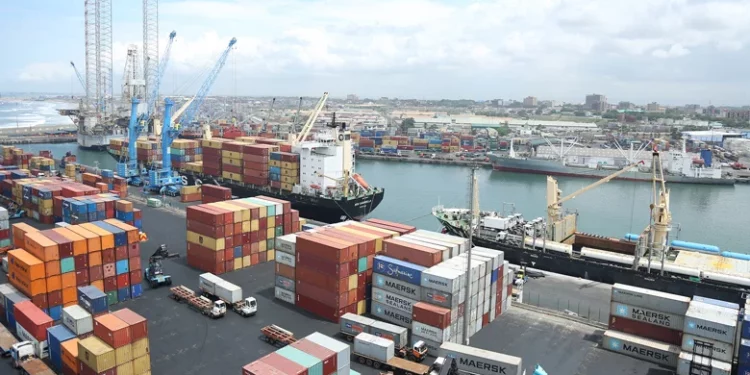Cost of consumer goods expected to be increased by the complete reversal of the discount policy on import duties
The President of the Association of Customs House Agents, Ghana (ACHAG), Yaw Kyei has predicted that the cost of doing business will increase as a result of the complete reversal of the discount policy placed on import values of general goods and home delivery values of vehicles during the payment of duties at the ports and frontiers of Ghana. This he anticipated, will inevitably affect the cost of consumer products on the market.
The President of ACHAG made his thoughts known during an Eye on Port panel discussion on the impact of the complete reversal of the discount policy on doing business in the country.
“Some of these wholesalers and retailers have the 30% discount absorbed within their profit base, now the reversal will cause a reduction in the profit margins and they will consider increasing the prices to recover the profits,” Mr. Kyei expressed.
It will be recalled that, the Government of Ghana, through the Customs Division of the, Ghana Revenue Authority in 2019, applied a 50% discount on duties payable on all general goods and 30% discount on vehicles to encourage more importation and tax compliance as well as alleviate the economic burden on the trading and consuming public. This discount was further reduced to 30% and 10% respectively in 2021. However, beginning January 1, 2023, the discount policy has been scrapped.
Touching on the subject, a Supervisor at the Vehicle Valuation Unit at the Customs Technical Services Bureau (CTSB), Justice Yadjayime explained that the reversal is in line with Government’s economic policy which seeks to improve revenue collection in the year 2023.
He also explained that this decision also came as a result of findings indicating that though discounts were applied on duties, this did not have a positive effect on the prices of goods on the market.
The Customs official also hinted that “government also has some commitment to those who are assembling vehicles that some of these things are done so that the market will be fair”.
He added however that the discount policy did improve tax compliance at the ports.
“A lot of people reported vehicles they brought in illegally to try to pay,” he cited.
This opinion was shared by the President of ACHAG who indicated that smuggling, and under invoicing had reduced and importers had become more willing to clear goods legitimately.
Mr. Yaw Kyei revealed that importers are unhappy with the reversal policy adding that many importers hurried to pay their duties ahead of the January 1 deadline in order to avoid paying more later.
He explained that they are upset more so because of the exchange rate volatility negatively affecting trade.
The President of ACHAG opined that he would have preferred to see these discounts applied on only a selected group of products government hopes to encourage importation of.
“We thought it would have been selected items but we realised that the 30% was applied on ammunitions, cigarettes, tooth pick, cotton bud, hair products, as other items we have competitive advantage in as a country.”








